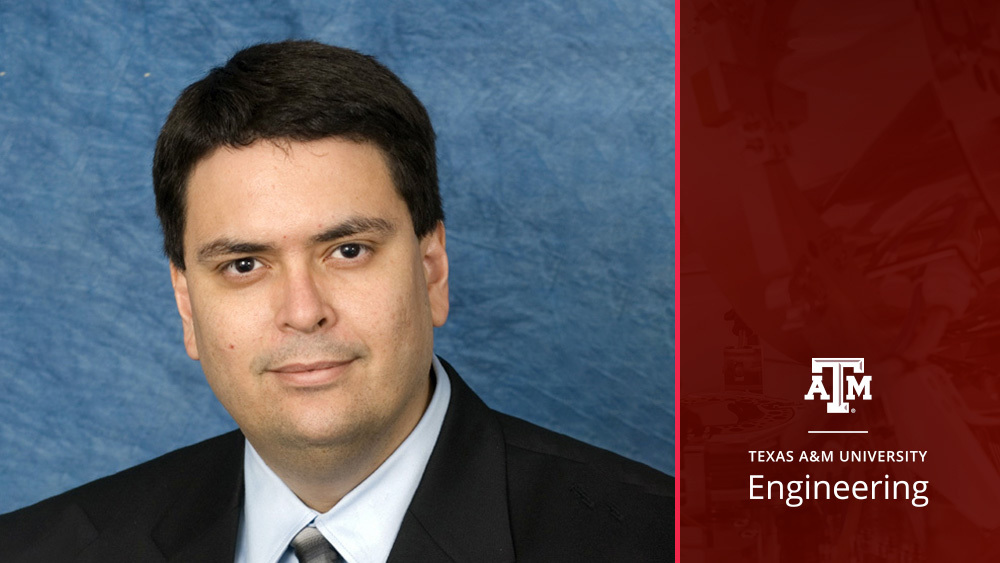
Across engineering and scientific disciplines, machine learning is the main method for analyzing and identifying patterns in big data and making informed decisions around that data. Recently, a new area within artificial intelligence called scientific machine learning has emerged, which introduces physics laws into machine learning models. Scientific machine learning combines the areas of artificial intelligence and scientific computation. Because scientific machine learning algorithms are informed and constrained by physics laws, they do not rely only on data and can even make predictions where there is no data. However, there has been little work on probabilistic methods in scientific machine learning, meaning that current algorithms cannot model uncertainty in the data or the physics.
To address this shortcoming, Dr. Ulisses Braga-Neto, professor in the Department of Electrical and Computer Engineering at Texas A&M University, was awarded a three-year National Science Foundation (NSF) grant titled “A Bayesian Paradigm for Physics-Informed Machine Learning,” which is part of a joint international program between the National Science Foundation and the Academy of Finland. Braga-Neto and his co-investigators, Dr. Ming Zhong from the Illinois Institute of Technology and a former postdoctoral researcher under Braga-Neto, and Dr. Simo Särkkä from Aalto University, Finland, will develop a probabilistic framework for scientific machine learning and apply it to various engineering and scientific problems.
This project is also a collaboration with the Texas A&M Institute of Data Science (TAMIDS) through the Scientific Machine Learning Lab (SciML Lab), of which Braga-Neto serves as founding director. The SciML Lab was established in January 2021 with a grant from TAMIDS to support and grow a community of researchers across Texas A&M involved in the development and application of scientific machine learning methods. The SciML Lab served as the pilot lab for the TAMIDS Thematic Lab Program, which supports research, education and outreach in emerging areas of data science.
The results of this research will benefit ongoing collaborative projects in petroleum engineering, aerospace engineering, computational biology, materials science and engineering, nuclear engineering, and astrophysics. The research is funded through the Texas A&M Engineering Experiment Station, a state agency that solves problems through applied research and development, and collaboration with industry, government and academic partners. The funding is provided by NSF, as part of an international collaboration with the Academy of Finland.
Texas A&M research collaborators on this project include Dr. Nick Duffield from the Department of Electrical and Computer Engineering and TAMIDS, Dr. Raymundo Arroyave from the Department of Materials Science and Engineering; Dr. James Cai from the Texas A&M School of Veterinary Medicine and Biomedical Sciences; Dr. Eduardo Gildin from the Harold Vance Department of Petroleum Engineering; Dr. Elaine Oran from the Department of Aerospace Engineering; Dr. Jean Ragusa from the Department of Nuclear Engineering; and Dr. Lifan Wang, from the Department of Physics and Astronomy. Other collaborators include Levi McClenny from Brown University and a former doctoral student under Braga-Neto; Xia Hu from Rice University; David Jeffery from the University of Nevada; and Alexei Poludnenko from the University of Connecticut.